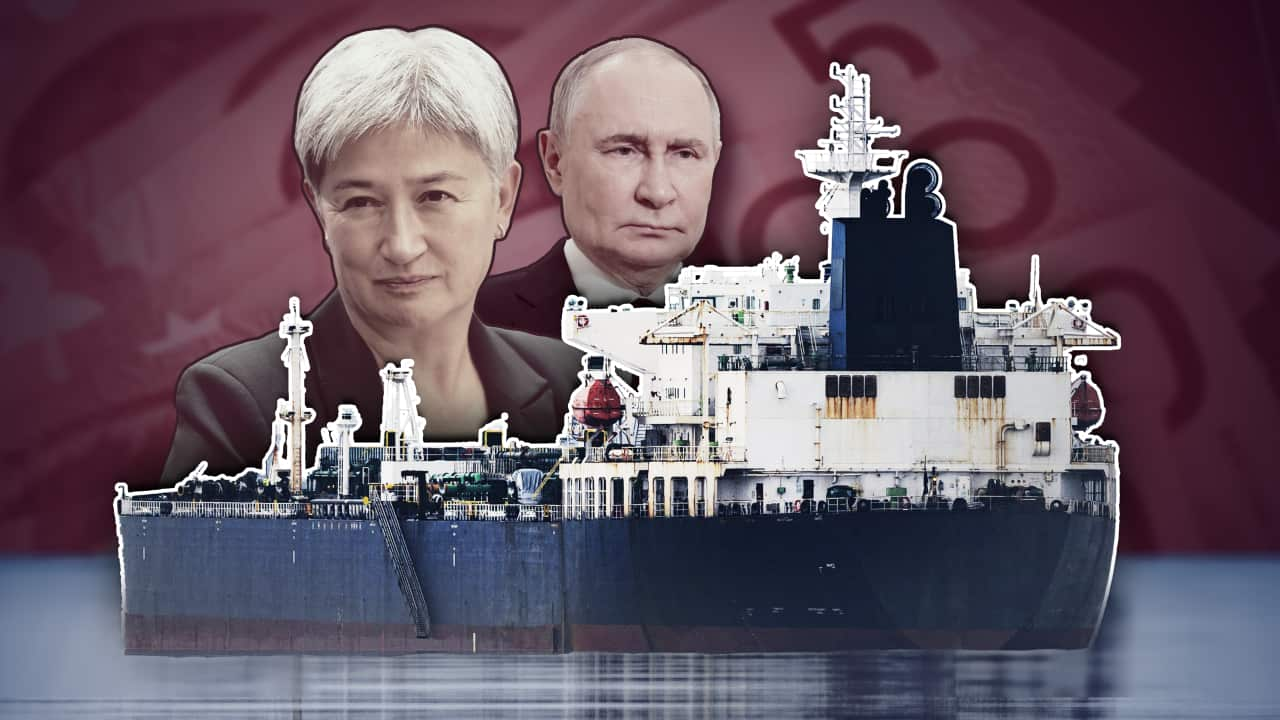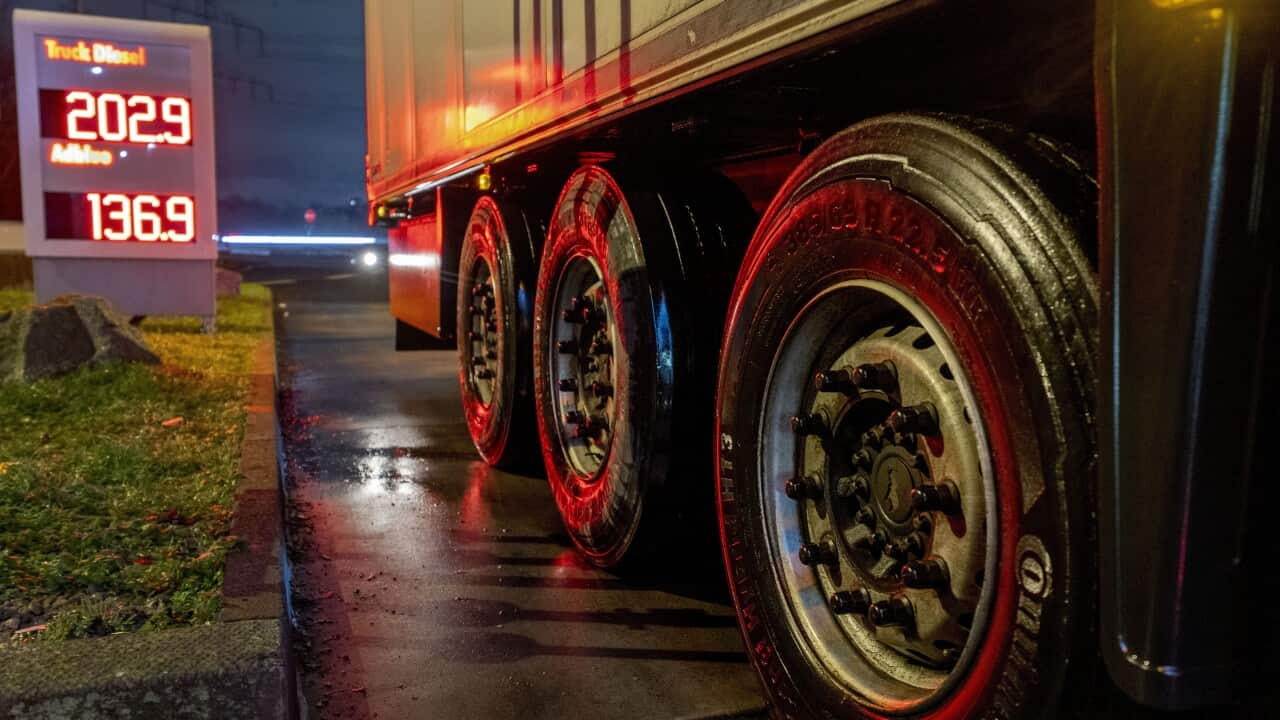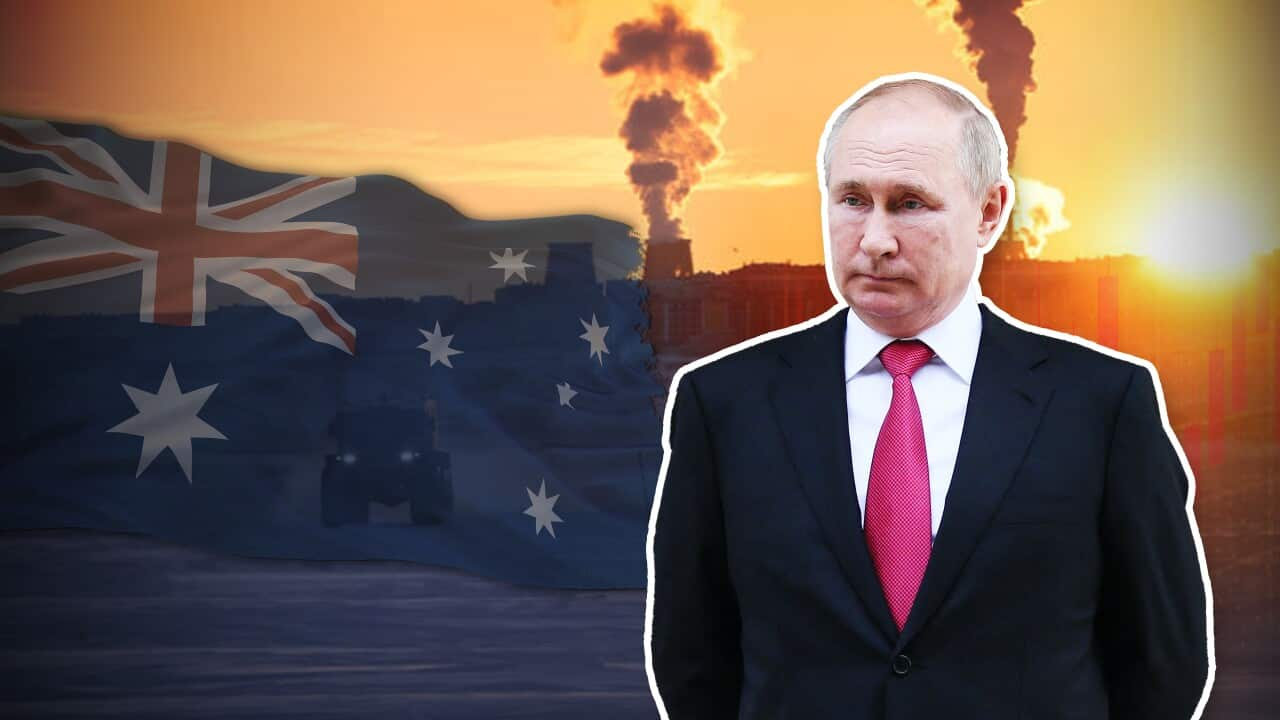The Australian government has sanctioned a series of vessels linked to Russia, saying they are operating under "deceptive practices".
The 60 vessels sanctioned on Wednesday could be asked to leave Australia or refused entry into a particular port or place along the country's coastline.
Foreign Minister Penny Wong said in a statement: "The sanctions reinforce Australia's consistent commitment to ensuring Russia, and those enabling its illegal invasion of Ukraine, face consequences."
Russia's shadow fleet has come under scrutiny over suspicious activity from European countries, particularly in the Baltic Sea, in the last 12 months.
So what is the fleet, and how significant are the sanctions?
What is Russia's shadow fleet?
Russia's shadow fleet isn't as high-tech or stealthy as its name might imply.
It is largely made up of ageing Russian oil vessels, the number unknown but estimated to be hundreds, used to evade sanctions and trade in goods to help support Russia amid the war in Ukraine.
The Russian government has faced thousands of sanctions — over 1,400 from Australia alone — since it invaded Ukraine more than three years ago.
In 2022, the G7 countries and the European Union imposed a $60 price cap on Russian oil exports. It prohibits Western financial institutions and logistics companies from conducting transactions above the cap, which largely impacts Russia's ability to trade.
Russia began operating a shadow fleet of vessels in response, ferrying its oil to various ports around the world where it could sell it above the purchase cap.
Joseph Camilleri, professor emeritus at La Trobe University, who specialises in international relations and the politics of oil, told SBS News the fleet operates under various flags to bypass restrictions imposed by the West and keep Russian exports flowing.
"The Panama flag is often used by a number of countries when they don't want to operate ships under their own flags," he said.
"That creates the kind of veil behind which governments, for whatever reason, don't want to use their own shipping to get around various obstacles that are in the way. And this is what Russia is doing at the moment."
What risk does the fleet pose?
There is growing concern in Europe the blacklisted ships are doing more than trading oil.
Last December, Finland seized an oil tanker linked to Russia while investigating damage to power cables carrying electricity between Finland and Estonia.
Finnish authorities discovered anchor drag marks extending across dozens of kilometres on the seabed, in what they claim were acts of sabotage.
More recently, in May, the Polish military allegedly intercepted a Russian ship in the Baltic Sea carrying out "suspicious maneuvers" near power cables connecting Poland and Sweden.
Poland's Prime Minister Donald Tusk said on social media: "After the effective intervention of our military, the ship sailed to one of the Russian ports."
What is the impact of Australia's sanctions?
The move comes as Prime Minister Anthony Albanese met with Ukrainian President Volodymyr Zelenskyy and other world leaders at the G7 meetings in Canada.
Canada, the United Kingdom and the European Union also announced sanctions on Russia's shadow fleet, which Wong said would "help starve the Russian war economy of oil revenue".
In a meeting with UK Prime Minister Keir Starmer, Zelenskyy stressed the need for G7 countries to coordinate sanctions against Russia's energy, banking sectors, shadow fleet and military-industrial complex.
Anton Moiseienko is a senior lecturer at the Australian National University Law School, specialising in the impact of economic sanctions.
He said while the fleet's inability to enter Australian ports is the practical effect, sanctions are often symbolic.
"It sends this message of, 'We know who you are. We know you're up to no good. We know that you are the vessels that sell Russian oil in defiance of the price cap'," he told SBS News.
Moiseienko said it doesn't mean the vessels are operating illegally, with much of the trade taking place with countries that aren't imposing sanctions.
"The effect is going to be rather limited, unless those vessels actually have some plans to come to Australia or have some trading activity in the region, it might well be the symbolic statement of condemnation," Moiseienko said.
Camilleri, on the other hand, was a bit more blunt, calling the impact of sanctions "absolutely negligible".
"It is just window dressing to show that Australia is saying something, doing something, but it's not really a meaningful intervention in the unfortunate situation in the relationship between Ukraine and Russia at this time," he said.
He suggests the government engage in discussions with China on what a peaceful outlook entails and how Australia can exert influence or advance ceasefire talks.
With additional reporting by the Australian Associated Press.



